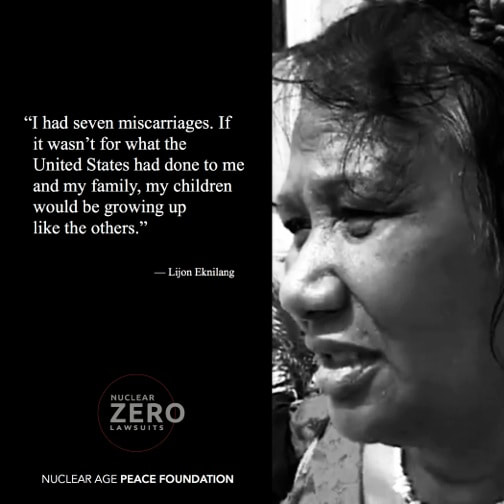|
Nuclear weapons and their legacy are not as far in the past as I grew up believing. I learned this a few weekends ago after attending a workshop put on by Washington Physicians for Social Responsibility about nuclear weapons and their history in Washington State. The Marshall Islands, where the U.S. conducted 67 nuclear weapons tests between 1948 to 1956, is among the communities that continues to feel the impacts of Cold War-era military action. Learning about U.S. involvement in the Marshall Islands made me realize how many interconnections there are between nuclear war and social justice issues. The reproductive health outcomes of Marshallese women are still poor, even 62 years after the last bomb was tested. Cancer is the number two cause of death, with thyroid, cervical, and breast cancer being most prominent amongst women. Yet there are no permanent oncologists anywhere on the Marshall Islands. Pregnancies often end in stillbirths, miscarriages, and birth defects commonly referred to as “jellyfish babies.” Along with poor health outcomes, there are also many barriers to accessing healthcare for the Marshallese. Under a treaty known as a Compact of Free Association, COFA, Marshallese citizens are allowed to work and live in the United States without a visa. However, despite paying taxes, Marshallese citizens are barred from accessing Medicaid and Medicare under current federal law. Only those who receive health insurance through their workplace have access to care, and only very few have that opportunity. States can pass legislation that adds immigrants under COFA back into state Medicaid and Medicare programs. As of March 2018, only Oregon, Hawaii, and Washington State had passed any such legislation. As someone interested in reproductive health, it has been deeply troubling to learn about this through my participation in the workshop and subsequent research. It has become clear to me that more emphasis needs to be put on the cultural history and legacy of a population when serving in the healthcare field. The folks that tend to slip through the cracks of systems are the ones professionals have the least cultural knowledge of. Written by Hannah PetersHannah is a Western Washington University student and current militarism research intern at WPJC Comments are closed.
|
Contributors
We invite the WPJC community to contribute fact-checked submissions on local, national and global current events. Linking to original sources and articles is required. Submissions may be sent to [email protected] for review. Categories
All
Archives
May 2024
|



 RSS Feed
RSS Feed